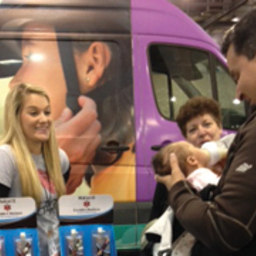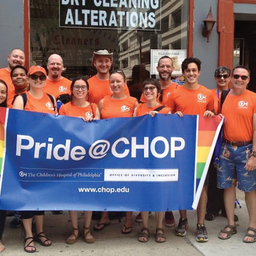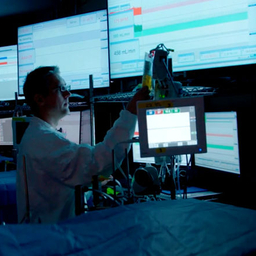
Goal: No More Injured Kids
Dec 30, 2016
Preventing injuries to children and youth is the focus of two complementary programs at Children’s Hospital: the Center for Injury Research and Prevention and the Injury Prevention Program.
<p>AGS is a rare genetic disorder that affects the brain, spinal cord and immune system.</p>

Dec 30, 2016
Preventing injuries to children and youth is the focus of two complementary programs at Children’s Hospital: the Center for Injury Research and Prevention and the Injury Prevention Program.

Dec 30, 2016
In 2015, the Adolescent Initiative helped more than 160 youth infected with HIV get care, and 3,000 Philadelphia teens received education and case management services in order to prevent new HIV infections.

Mar 14, 2017
Over the last 20 years, the likelihood that a child will develop a kidney stone has doubled. Children’s Hospital of Philadelphia researchers are discovering why.

Mar 13, 2017
Thank you to the hundreds of Cheers for CHOP guests who danced the night away, raising more than $610,000 to benefit CHOP's Division of Pulmonary and Sleep Medicine!
Mar 1, 2017
According to recent research led by CHOP neurologist Lori Billinghurst, MD, children are more likely than adults to report headache at the onset of stroke.

Dec 30, 2016
The Autism Roadmap is a comprehensive, one-stop website to help families find accurate, up-to-date information about autism spectrum disorder (ASD).

Dec 30, 2016
Employees and CHOP leaders participate in community events and work to build awareness and skills among CHOP’s own staff so that the Hospital is welcoming to all.
Mar 7, 2017
Children take their lead from parents, so how parents approach getting a vaccine lays the foundation for how toddlers, school-aged children and even teens will view getting a vaccine.
Mar 2, 2017
The 2015 annual report from the Department of Child and Adolescent Psychiatry and Behavioral Sciences highlights new clinical insights.

Apr 25, 2017
A unique, womb-like environment designed by pediatric researchers at Children’s Hospital of Philadelphia could transform care for extremely premature babies.